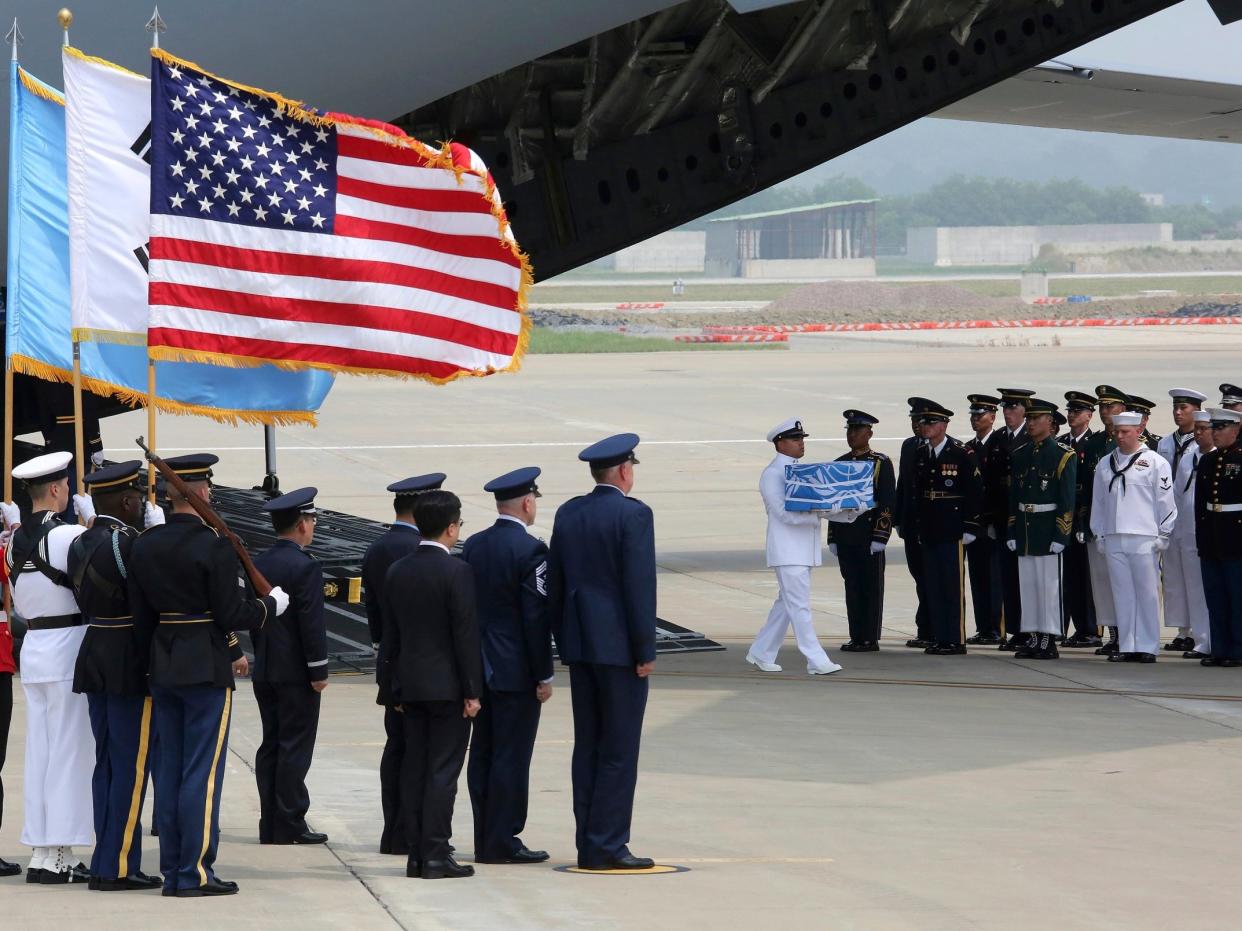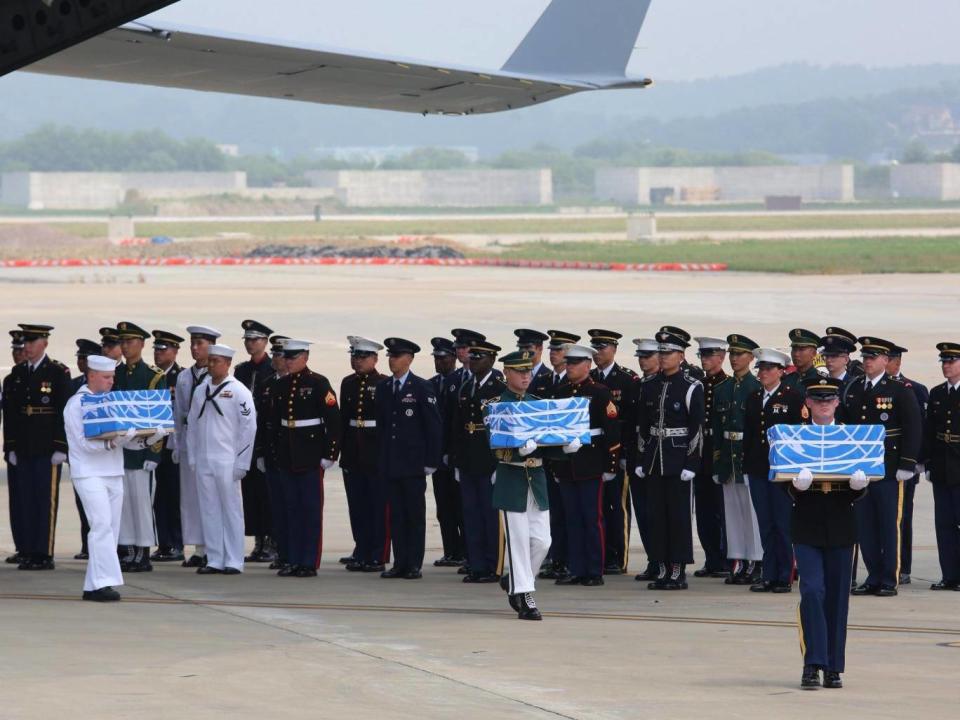North Korea returns remains of US soldiers killed during Korean War

North Korea has returned what are believed to be the remains of US soldiers killed during the 1950-53 Korean War, the latest gesture of goodwill between the two nations following the Singapore summit in June.
A US military plane made a rare trip into North Korea to retrieve 55 small, flag-draped cases of remains on Friday.
The repatriation is seen as a modest diplomatic victory for Donald Trump, because it was one of the agreements reached when he met with North Korea’s leader, Kim Jong-un.
“After so many years, this will be a great moment for so many families. Thank you to Kim Jong-un,” the US president wrote on Twitter.
The Remains of American Servicemen will soon be leaving North Korea and heading to the United States! After so many years, this will be a great moment for so many families. Thank you to Kim Jong Un.
— Donald J. Trump (@realDonaldTrump) July 27, 2018
The White House earlier confirmed a US Air Force C-17 aircraft containing the remains of fallen service members had departed the North Korean city of Wonsan, on its way to the Osan air base in Pyeongtaek, near the South Korean capital Seoul.
At the airbase, soldiers in dress uniforms with white gloves slowly carried 55 small cases covered with the blue and white United Nations insignia, placing them one by one into silver vans waiting on the tarmac.
Officers looked on next to the flags of the United States, South Korea and the UN.
A formal repatriation ceremony will be held at the base on Wednesday, the White House said.
The remains would then be flown to Hawaii for scientific testing to determine if they are human and if the dead were American or allied troops killed during the conflict. It’s a process that could take a number of years.
The transfer coincided with the 65th anniversary of the 1953 armistice which ended fighting between the North Korean and Chinese forces on one side and South Korean and US-led forces under the UN Command on the other.
Because a peace treaty was never signed, the two Koreas are technically still at war.
About 7,700 US soldiers are listed as missing from the 1950-53 Korean War, with about 5,300 of those believed to be in North Korea. The war killed millions, including 36,000 American soldiers.
The pledge to transfer the war remains was considered a gesture towards rapprochement by Mr Kim at the summit in June and the handover will rekindle hopes for progress in nuclear talks.
In a broad statement at the summit, Mr Kim committed to work towards denuclearisation, but Pyongyang has offered no details about how it might happen.
South Korea welcomed the return of the remains, calling it “meaningful progress that could contribute to fostering trust” between Pyongyang and Washington.
The two Koreas agreed to hold general-level military talks on Tuesday to discuss ways to implement their own summit in April in which they vowed to defuse tensions, Seoul’s defence ministry said on Friday.
Pyongyang has renewed calls for a declaration of the end of the Korean War, calling it the “first process for peace” and an important way Washington can add heft to security guarantees it has pledged in return for North Korea giving up its nuclear weapons.

The US State Department says Washington is committed to building a peace mechanism to replace the armistice when North Korea has denuclearised.
US Secretary of State Mike Pompeo, who has led the US negotiating effort, told a Senate hearing on Wednesday that North Korea was continuing to produce fuel for nuclear weapons despite its pledge to denuclearise, even as he argued the United States was making progress in talks with Pyongyang.
Mr Pompeo said the North had begun to dismantle a missile test site, something Mr Kim also promised in Singapore, and called it “a good thing, steps forward”. However, he said Mr Kim needed to follow through on his summit commitments to denuclearise.
Before the transfer of remains on Friday, the United States and North Korea had worked on so-called joint field activities to recover Korean War remains from 1996-2005. Washington halted those operations, citing concerns about the safety of its personnel as Pyongyang stepped up its nuclear programme.
More than 400 caskets of remains found in North Korea were returned to the United States between the 1990s and 2005, with the bodies of some 330 other Americans also accounted for, according to the Defence POW/MIA Accounting Agency.
The programme helped bring in vital hard currency to North Korea, which has been under US-led sanctions for decades.
However, reviving it could complicate US efforts to persuade countries around the world to maintain economic pressure on Pyongyang over its ballistic and nuclear programmes.
Additional reporting by agencies

 Yahoo News
Yahoo News 
